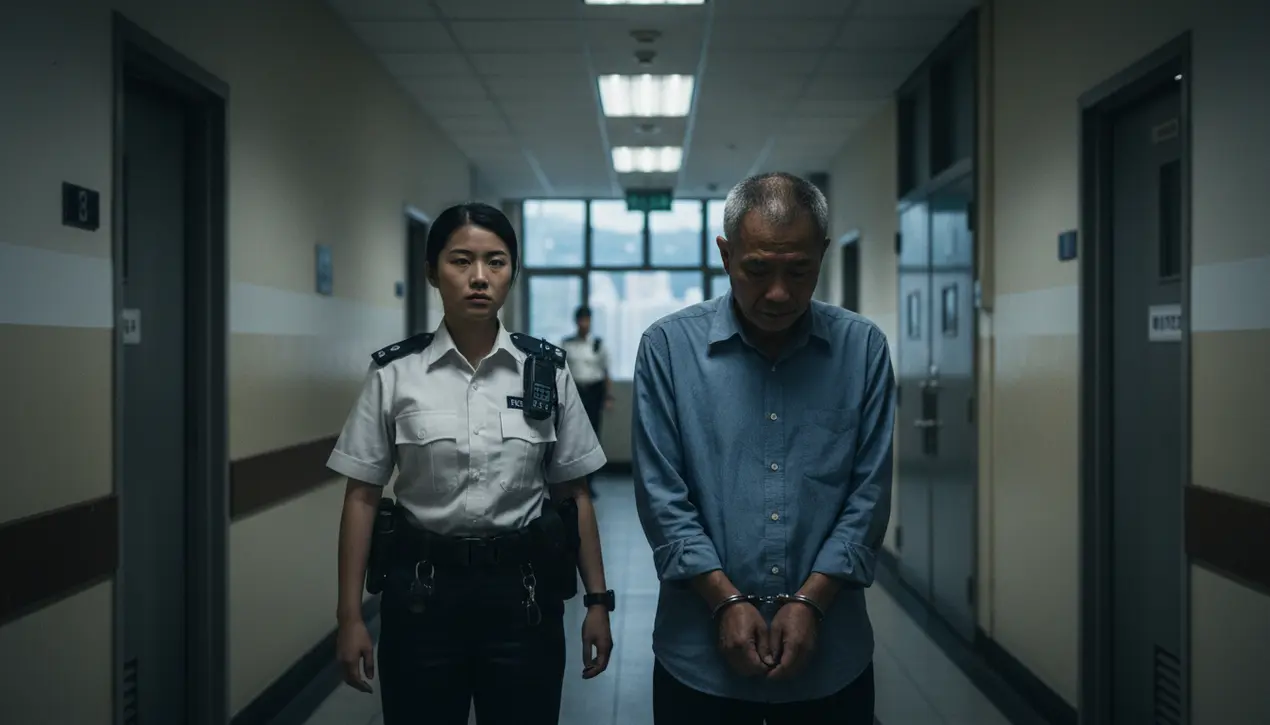
Politicscorruption & scandals
Hong Kong police inspector jailed for sexually assaulting junior officer.
EM
Emma Wilson
4 hours ago7 min read1 comments
In a verdict that reverberated through the corridors of Hong Kong's law enforcement community, Senior Inspector Leung Yun-sing, a 57-year-old veteran with nearly four decades of service, was sentenced to nine weeks in prison and fined HK$6,000 for the indecent assault of a junior female officer. The Kwun Tong Court delivered its judgment on Friday, convicting Leung on two counts of assault that occurred within the Hung Hom Police Station on February 18—a stark reminder that the institutions sworn to protect are not immune to the abuses of power they are meant to combat.The details of the case are as disturbing as they are clear: under the guise of expressing concern over her job performance, Leung embraced the policewoman and patted her buttocks, a violation that transforms a workplace into a site of fear and humiliation. This is not an isolated incident but part of a troubling pattern within patriarchal structures globally, where authority is weaponized to exploit subordinates.The victim, whose identity remains protected, represents countless women in uniform who navigate not only the dangers of their duty but also the insidious threat from within their own ranks. The sentence, while a legal acknowledgment of wrongdoing, raises profound questions about its adequacy.A nine-week incarceration and a modest financial penalty for a man with 37 years of service seem disproportionately lenient, potentially undermining the message of accountability that the Hong Kong Police Force desperately needs to project amid ongoing scrutiny over its conduct and integrity. Historically, such cases have often been shrouded in silence, with victims fearing retaliation or career stagnation, but a growing global movement—echoed in the #MeToo era—is empowering more to come forward.Experts in gender-based violence and institutional ethics point to this case as a critical test for Hong Kong's commitment to reforming its internal governance. The city, a Special Administrative Region of China, operates under a unique legal framework where public trust in police is paramount for social stability, yet incidents like this erode that trust layer by layer.The broader context includes similar scandals in other jurisdictions, from the UK to Australia, where police forces have faced reckoning over misogyny and harassment, leading to independent inquiries and overhauled disciplinary procedures. The consequences for Leung extend beyond the courtroom; his career lies in ruins, his pension and reputation forfeited, but the ripple effects will be felt across the force, potentially catalyzing either meaningful change or further entrenchment of a toxic culture.For the victim, the path to healing is fraught with psychological trauma, compounded by the fear of professional ostracization. This case should serve as a clarion call for mandatory anti-harassment training, anonymous reporting mechanisms, and stronger oversight—measures that are not just procedural but foundational to restoring faith in those who wear the badge. As the sun sets on this chapter, the hope is that justice, however delayed, can ignite a broader conversation about dignity, power, and the unyielding courage of those who speak truth to it.
#featured
#Hong Kong police
#sexual assault
#court case
#corruption
#law enforcement
#weeks picks news
Stay Informed. Act Smarter.
Get weekly highlights, major headlines, and expert insights — then put your knowledge to work in our live prediction markets.
Comments
Loading comments...
© 2025 Outpoll Service LTD. All rights reserved.